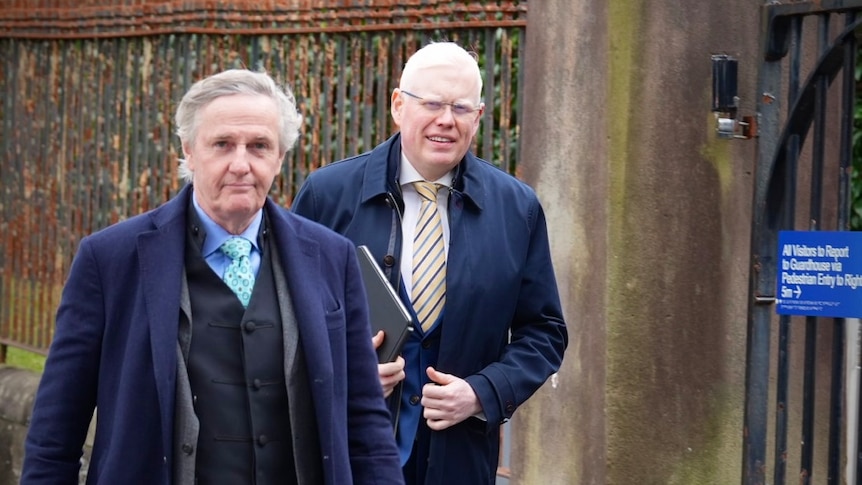As the courtroom buzzed with anticipation, the former detective who spearheaded the investigation into NSW MP Gareth Ward found himself at the center of scrutiny. His late arrival to give evidence, in breach of a court order, sparked sharp criticism from the defense team. This unexpected turn of events added a dramatic twist to the ongoing trial, intensifying the already charged atmosphere.
The case against Mr. Ward dates back to March 2022 when he was charged with multiple offenses, including sexual assault and indecency. The gravity of the allegations and the high-profile nature of the accused had already set the stage for a contentious legal battle. The former detective, Senior Constable Cameron Bignell, faced tough questioning regarding investigative delays and alleged oversights in pursuing crucial leads.
Under cross-examination, Mr. Bignell admitted to violating his subpoena by arriving hours behind schedule, citing unavoidable commitments as the reason for his tardiness. The defense barrister, David Campbell SC, wasted no time in highlighting what he deemed as a blatant disregard for the court’s directives. The exchange between the two legal adversaries crackled with tension, each probing the other’s motives and professionalism.
Amidst the courtroom drama, the broader implications of Mr. Bignell’s actions loomed large. His delayed appearance not only irked the defense but also raised questions about his dedication to the case. The defense’s accusation that the former detective had a cavalier attitude towards his responsibilities struck at the heart of the matter – the pursuit of justice in a complex, high-stakes legal battle.
“You defied that order, didn’t you?” Mr. Campbell pressed, unearthing the underlying tension between protocol and personal circumstances.
The unfolding courtroom saga revealed deeper layers of complexity within the investigation. Mr. Bignell’s tenure as the lead investigator came under intense scrutiny as the defense delved into missed opportunities and procedural delays. Questions about why certain leads were not pursued, or why crucial evidence was not collected in a timely manner, cast a shadow over the integrity of the investigation.
“You do what you want to do, rather than what you should,” Mr. Campbell accused, painting a picture of a maverick investigator operating on his terms.
The revelation that key pieces of evidence, such as taxi records crucial to corroborating a witness’s statement, had been overlooked or mishandled further muddied the waters. The intricate web of details and oversights painted a picture of an investigation fraught with challenges and potential oversights.
As the trial entered its seventh week, the spotlight shifted from the accused to the conduct of those tasked with upholding the law. The courtroom drama served as a stark reminder of the intricate dance between justice and procedural adherence. The narrative that unfolded within the walls of the courtroom echoed far beyond its confines, resonating with broader themes of accountability and the pursuit of truth in the face of adversity.
“This is part of you, isn’t it — that you do what you want to do, rather than what you should,” Mr. Campbell’s words lingered, encapsulating the core conflict at the heart of the trial.
As the trial pressed on, the lines between right and wrong blurred, leaving observers grappling with the complexities of a legal system tasked with unraveling the truth. The clash of egos and ideologies within the courtroom mirrored the broader societal tensions simmering just beneath the surface, underscoring the profound impact of individual actions on the fabric of justice.
In the end, as Mr. Bignell faced continued cross-examination, the trial stood as a testament to the enduring quest for justice in an imperfect world. The echoes of the courtroom exchanges reverberated through the halls of power, a stark reminder of the delicate balance between upholding the law and navigating the intricacies of human nature. As the trial inched towards its conclusion, the unresolved questions and lingering doubts served as a poignant reminder of the complexities inherent in the pursuit of truth and justice.

